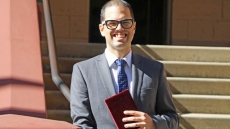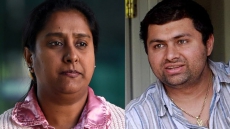The Indian diaspora must move beyond culture, heritage and traditions into present day areas of sustainable development, according to a well-known academic here.
Clement Sankat, principal of the St. Augustine Campus, University of the West Indies, said at the opening ceremony of the International Indian Diaspora Conference at the university on Tuesday evening that there must also be co-operation in such areas in science, technology, innovation, medicine, entrepreneurship and agriculture. The conference ends Friday.
Trinidad and Tobago celebrates 170th anniversary of the arrival of East Indians from India, principally from Uttar Pradesh and Bihar on May 30, a public holiday here since 1992. The first batch of East Indians numbering 238 came on the steam ship, "Fatal Razack" in 1845 and several ships came until 1917, bringing the stock of East Indians to approximately 148,000. They were brought here by the then colonial government to enhance the decaying agricultural capacity in cocoa, coffee and sugar cane.
"We must build a new impetus towards a direction for sustainable development that is mutually beneficial to India and its global diaspora," Sankat said.
East Indian culture is now interwoven into Trinidad and Tobago society easily identifiable in its food, language, music, dress, names, art and other forms of cultural assets.
Minister of Foreign Affairs Winston Dookeran said that there was a need for a Caribbean identity which could become the basis for the development of a Caribbean civilization. "Through scholarship and conferences, the Caribbean could develop a Caribbean civilization, and this must enrichen a global civilization."
Dookeran recalled that approach was started in the 1975 conference to search the pathway for the Indian diaspora here.
Indian High Commissioner Gauri Shankar Gupta hailed the Indian diaspora for their strength and resilience in the global community, adding that the names of people of this extraction are found at all levels of society politics, culture, religion, academic and sports.
The four-day conference has assembled delegates from several countries with strong diaspora populations such as Fiji, Suriname, USA, UK, the Netherlands and, of course, India.
Areas of focus include: Indians in the Caribbean, literary representations of the Indian diaspora, religion and spirituality in the Indian diaspora, historiography of the Indian diaspora, cross cultural exchanges and art, music and aesthetics.



